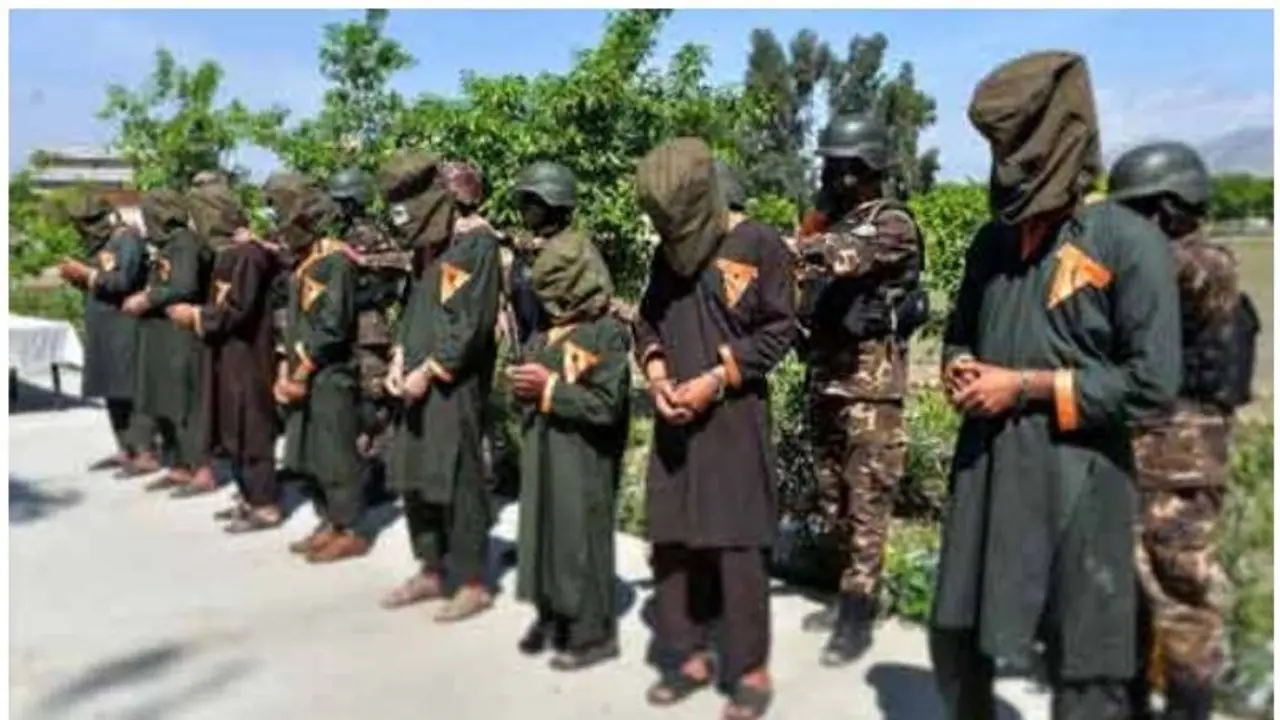The surrender of members from the Islamic State before the Afghanistan forces no doubt comes as good news to many, but one must be wary as this could be a ploy by ISIS to have trained members return to their homeland to carry out attacks
10 Indians were among the 900 from the Islamic State who surrendered before the Afghanistan forces in the past fortnight. 10 Indian women and children, most of them from Kerala, are said to have surrendered and have been shifted to Kabul.
More recently, Sonia Sebastin alias Ayesha who was one among the 21 persons from Kerala who joined the ISIS too surrendered before the Afghan forces. She is the wife of Rashid Abdullah, the head of the Kerala module. He had in fact converted her to Islam before taking her along to Afghanistan.
Is the surrender a ploy?
When these persons had left India in batches, the Intelligence agencies had suggested that they would want to return to India someday. There is a dedicated team of the intelligence that keeps a watch on such returnees.
In its assessment, the IB has said that those returning could be much more dangerous as it has been witnessed in the past that these are ones who carry out attacks. A similar trend was witnessed when the returnees of the ISIS carried out the deadly Paris attack.
What the intelligence has learnt that is that the real reason behind these persons leaving for countries such as Syria, Iraq or Afghanistan is not to fight alongside the ISIS. They undergo a thorough radicalisation process and are also imparted training.
A couple of these persons when questioned upon their return have told their interrogators that the brief is clear. We are told to train hard and then return. We are expected to not only carry out attacks in our homeland, but also ensure that locals are brainwashed and also join the group. The ISIS is looking to establish the Caliphate and wants micro modules in every state and city, the investigators were also told.
The surrender of these Indians in Afghanistan is very good news. However, there is also a lurking danger and India is watching the developments very closely. It would be extremely important to deal with these persons in a cautious manner and absolutely no leeway can be given. A Home Ministry official tells MyNation that their return would be a calculated risk. While some may have surrendered genuinely, there could be one or two within the group planning something nefarious.
The pattern:
This ploy of leaving for a foreign land and then returning their home country was a plan set up by Abu Bakr Al-Baghdadi back in 2016. He realised that the ISIS was soon losing ground in its mainstays of Iraq and Syria.
He had then advised all the foreign fighters to return to their homeland and carry out attacks over there. One such example was the Paris attack. The brief for the Indian recruits too is no different. The investigations conducted by the National Investigation Agency and other agencies clearly have revealed this intent of these persons to come back strike, brainwash and set up modules.
Investigations had learnt that those from the Kerala module had planned on training in Afghanistan before returning to India. They were to be launched into Pakistan and then make their way into Nepal. From Nepal they were to travel by road and reach their destination in Kerala.
Intelligence Bureau officials say that while they have been looking to use this route, it is not very easy, owing to extreme monitoring. They could be surrendering in Afghanistan with the hope of being deported. Depending on the nature of the offence, they would undergo a sentence and then come out and strike. This could well be the ploy, the officer also explains.
Post Baghdadi’s death:
The ISIS may have been a slow starter in India, but it has huge plans for the country. One of the keys to their successes is the manner in which Wahhabism has infiltrated states such as Kerala and the Union Territory of Jammu and Kashmir. The Wahhabi ideology gels perfectly with the ISIS thought process and hence is able to pick up recruits with ease in these places.
Very recently the ISIS announced a group for India called the Wilayah of Hind. This group has its eyes set on Kerala, Jammu and Kashmir, Tamil Nadu and Telangana. Further the group is also working closely with local radical groups and trying to establish a strong module. This was the similar modus operandi that was witnessed in the Easter Blasts at in Sri Lanka, where the ISIS carried out the ghastly attack with the help of a smaller local module.
The death of Baghdadi was no doubt a blow to the outfit. However, the assessment conducted by agencies across the world say that the death is just a minor setback, but the problem is that the ideology is deeply infested. This would ensure that the ideology would continue to attract many and a lot of them would be returning to their homeland and plot something evil.
In a state like Kerala or Tamil Nadu, radicalisation is extremely high. Those wanting to join the ISIS or return to their homeland would get the much-needed support. Further, the agencies have always maintained that states such as Kerala are ticking time bombs.
Abhinav Pandya, a Cornell University graduate in public affairs, who also writes for India’s premier think-tank Vivekananda International Foundation has dealt with the issue of radicalisation in-depth. He says that the radicalisation in Kerala is more dangerous than Kashmir. In Kerala, there is no perceived instance of discrimination, but the youth still tilts towards the Caliphate.
